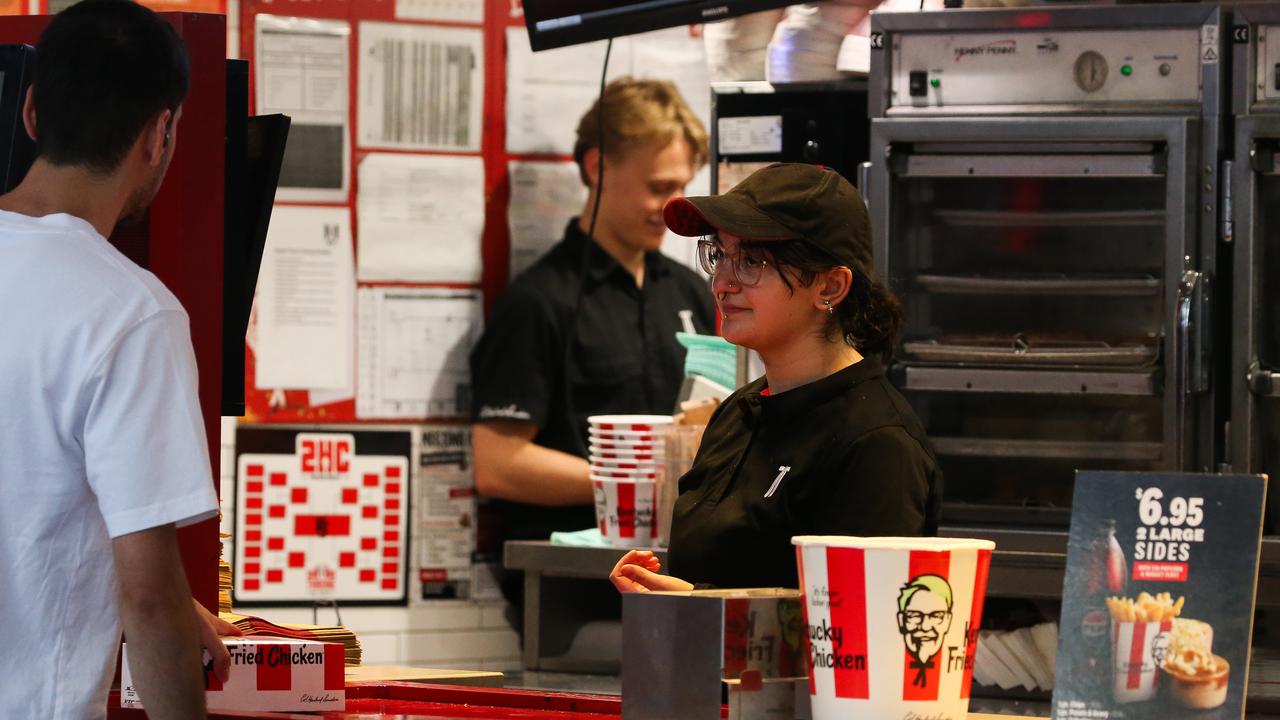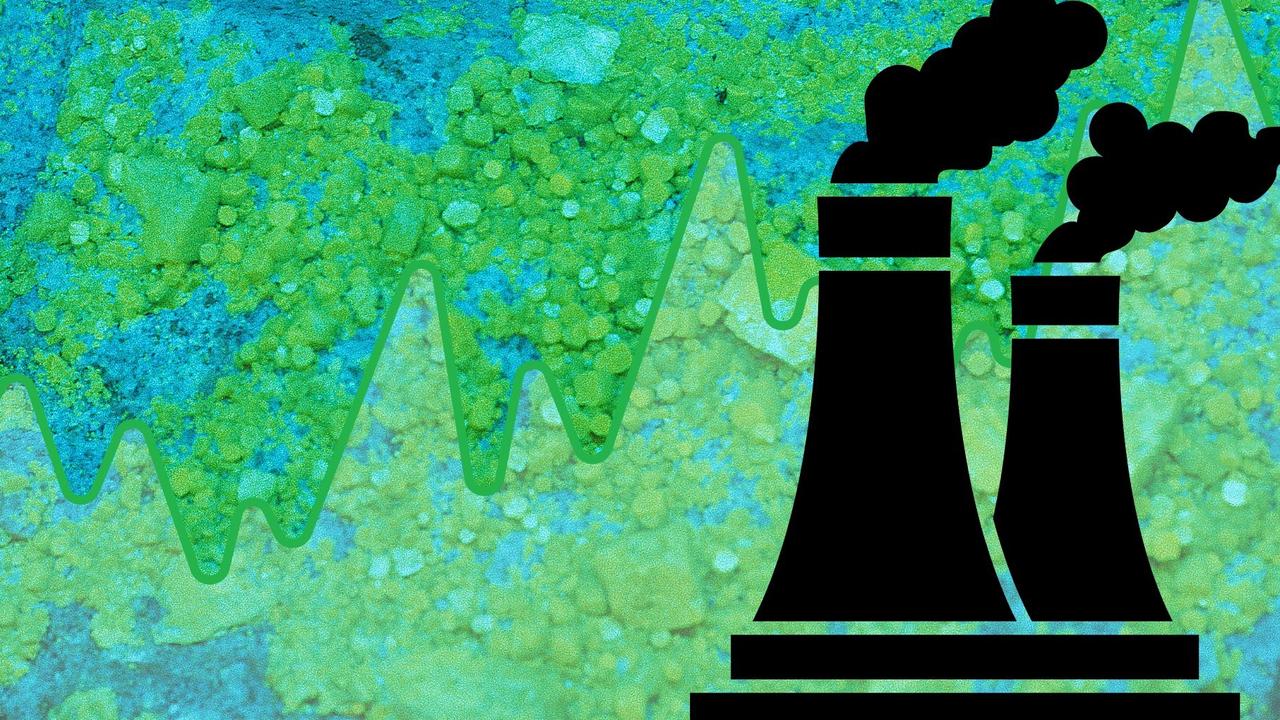Premium cherry and salmon producers pair up over waste
There’s no poo-pooing a new compost initiative where salmon by-product is used to enrich a premium cherry crop.
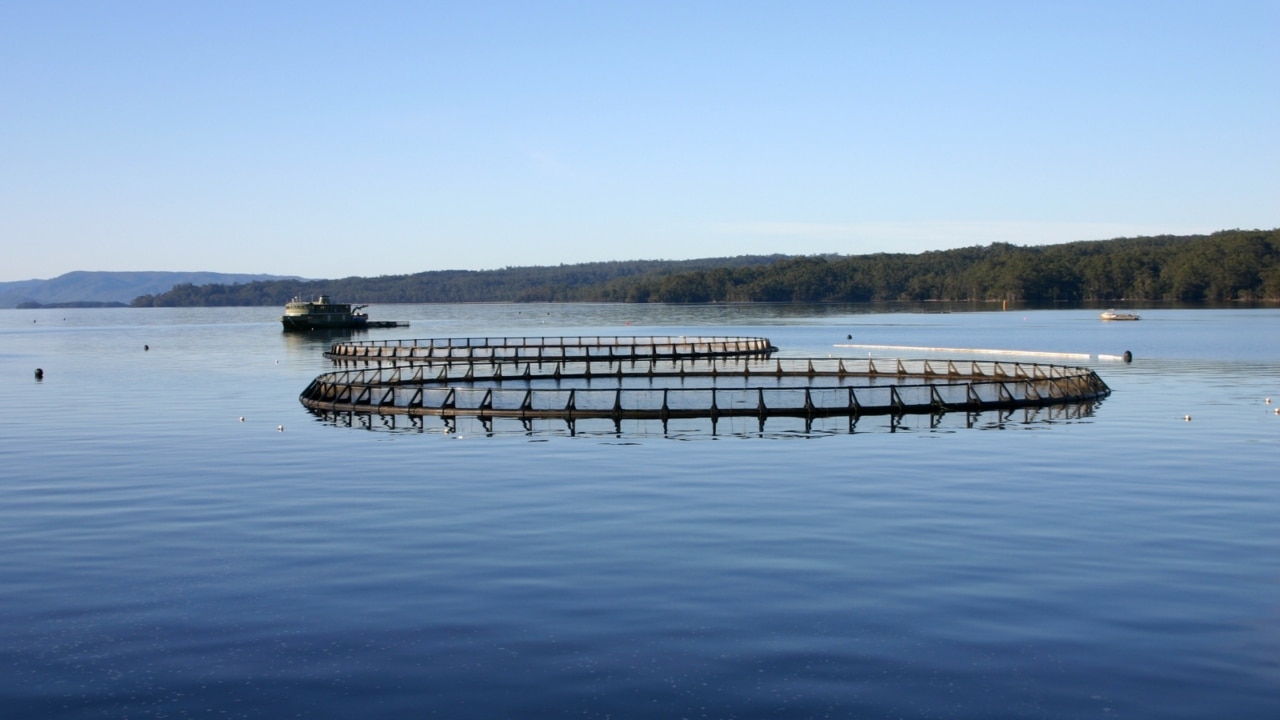
Business
Don't miss out on the headlines from Business. Followed categories will be added to My News.
- Weird and obscure Tassie laws that can land you in jail
- Tassie landlords failed over pandemic rent relief laws
IT seems it’s not just on menus that salmon and cherries go well together.
A partnership between salmon farmer Huon Aquaculture and Cherries Tasmania Orchards is seeing a salmon by-product being converted into a nutrient-rich compost to boost cherry production.
Cherries Tasmania owner Nic Hansen says the fish waste from Huon’s freshwater hatchery enriches his orchard’s homegrown compost with calcium, phosphorus and nitrogen while also improving the soil’s microbial diversity.
“It’s like a Christmas gift for us each time the truck comes in because we know what benefit the end-product compost has on our orchard health,” said Mr Hansen.
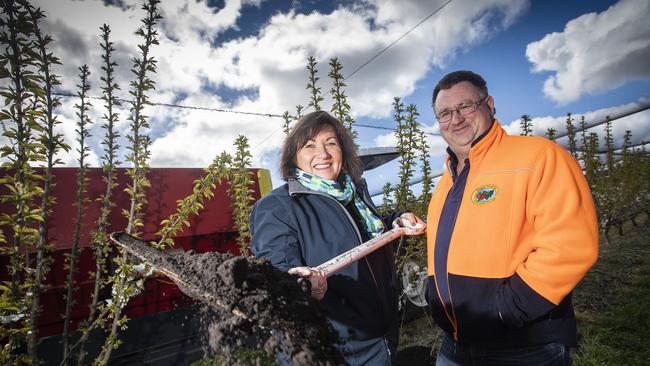
“There’s a synergy between a healthy tree and a premium piece of fruit. You get better shelf life, better flavour and texture, and a better firmness in the fruit. The two go hand-in-hand.”
Lower ammonia, sodium and chloride levels in the finished compost are only some of the benefits of using fish waste over other animal-based manures. A better microbial diversity in the soil is the greater benefit.
“What you see here today is the result of seven years of very hard work and research and development in what we think is Tasmania’s best compost product,” said Mr Hansen.
“We saw a need to manufacture a better-quality compost in our facility. We thought the commercially available composts weren’t good enough for the quality of fruit we have to produce here in Tasmania.”
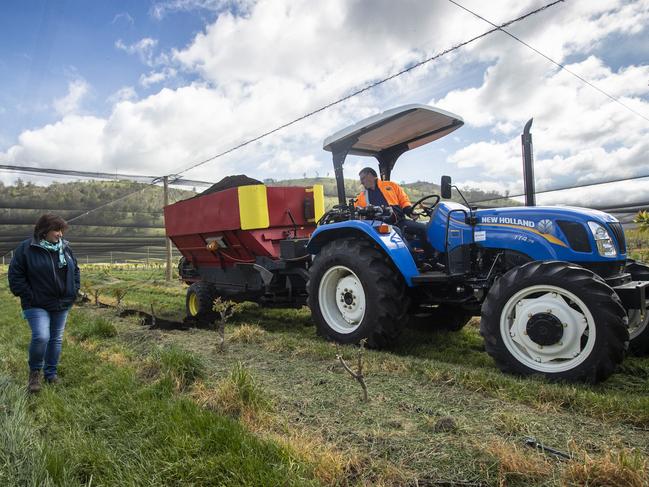
Of the 1300 tonnes of salmon waste produced annually by Huon’s land-based Whale Point nursery at Port Huon, 400 tonnes is trucked to Cherry Tasmania’s Old Beach orchards.
The salmon business is now working with other farmers to take on the waste that would otherwise end up as landfill at Interlaken.
“It’s a win-win for everybody because our fish poo is collected and used to grow another food product,” said Huon Aquaculture co-owner Frances Bender.
“We’ve now been able to value add something that is a waste product. We believe that we’ll be in a situation where we will be making a small profit on a waste product rather than it being a cost to the business.”

